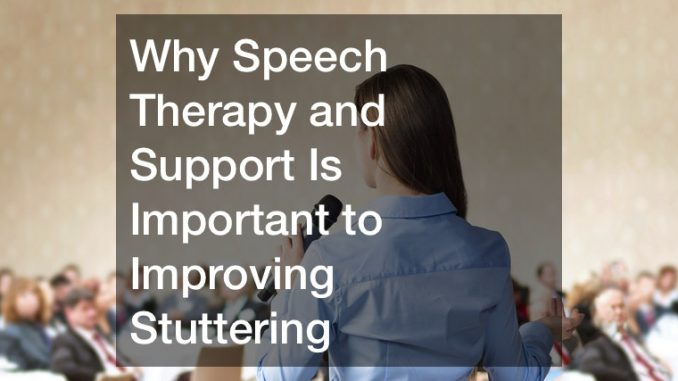

There are many types of therapy assistance that toddlers and young children can get to help them grow and develop. One of the most common of these is speech therapy. If a parent has a child who has speech delays or issue such as stuttering or difficulties with communication due to issues such as autism, speech assistance therapy can be very helpful. Many parents often wonder does speech therapy help toddlers and young children and the answer is yes! Working with a skilled and licensed speech therapist is the most important thing that can be done for any child who is struggling with any number of speech and communication related issues. Speech is a vital body function and is often overlooked.
Whether the sessions are one on one with the child and therapist, a group setting, or a broad and all-encompassing family speech therapy approach, any help and assistance can help children overcome their sheep issues. Children who go to speech classes and get help from professionals can more easily catch up to their peers and be more confident in their speech and communications. Once trained professional therapy has begun, parent can continue the training and therapy at home to ensure there is daily reinforcement, encouragement, and progress.
Stuttering is a speech disorder which shows itself in the repetition of sounds, words, and interruptions in speech. A person affected by this disorder has no mental difficulty in constructing what they wish to say, it is that they experience trouble with producing auditory sentences smoothly. This disorder by also include facial tics or spasms in the eyes or lips which can also impede the function of communication. If you have a child struggling with this disorder, there are speech therapy options that you may find beneficial in helping strengthen your child’s speech.
Speech and language Disorders: The Therapy Benefits
Speech therapy for those experiencing stuttering can help with:
- Reducing the frequency and severity of stuttering.
- Decrease the struggle when speaking, and alleviate some tension.
- Assist with social skills development and word/situation avoidance.
- Improving communication skills such as proper phrasing, eye contact, and gestures.
- Setting long term and short term goals that can help make headway with progress in increments.
Working with a speech pathologist can help mitigate the symptoms of an expressive language disorder such as stuttering, can can help your child to better communicate as they learn.
Social Support
While going through speech therapy, and truly throughout life, the most important thing for anyone who experiences stuttering is the support of those around them. Having a safe place where they can practice and express themselves can go a long way to improving the disorder and making the individual feel comfortable and valued. Removing the stigma around these kinds of disorders is just as important as supportive therapy. While therapy can teach techniques and strategies to make communication easier, we also need to focus on not making a person feel they are somehow lesser or different. Patience is needed throughout their therapy; and giving them time to practice whenever possible can make a world of difference.
Finding a Pathologist
If you have a child who is experiencing problems with stuttering. Research the speech pathologists in your area and see which one would be the best match for you. Be sure to also talk to your insurance agency to see if they cover speech therapy, stuttering therapy in particular. This is important because many companies will cover restorative therapies that are meant to be used after a stroke or accident, but not therapy designed for stuttering. Another option may be university programs, which tend to cost less due to their use in training students. Receiving an evaluation from a university does not mean that your child won’t receive the highest standard of care either, while the students are learning, an experience professional will be overseeing and making the final call.
If you have a child struggling with stuttering, consider all you options and remember to support them, and be patient with them every step of the way. Stuttering can be mitigated and improved with the proper therapy, and can serve as a lifelong benefit for the individual.
